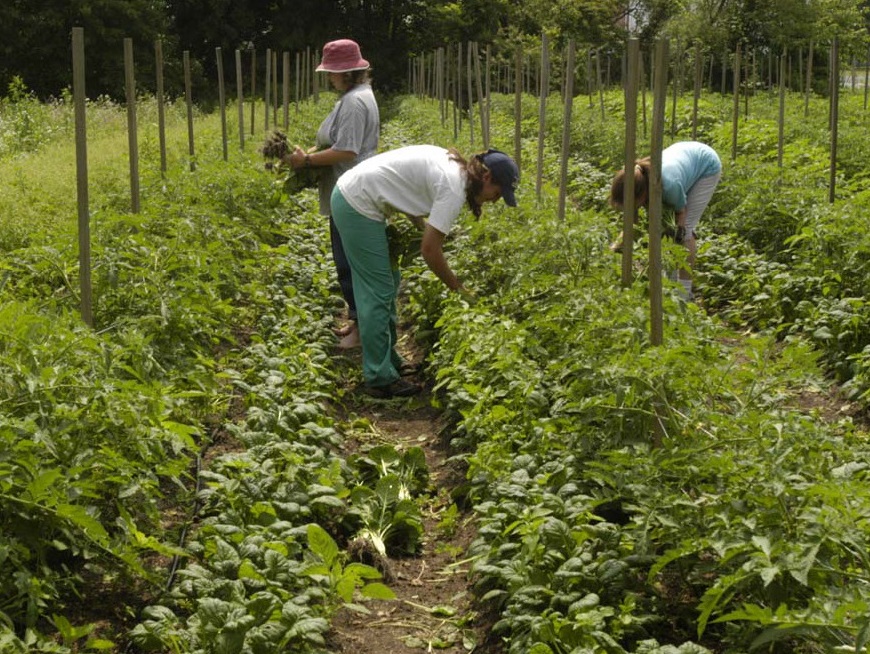Seasonal Gardening Tips: What to Plant and When for Best Outcomes
Seasonal Gardening Tips: What to Plant and When for Best Outcomes
Blog Article
Unlocking the Conveniences of Horticulture: An In-depth Appearance at the Various Types and Their Influence On Well-Being
Exploring the diverse advantages of gardening discloses a range of methods that considerably boost private wellness. As we analyze these diverse gardening strategies, it ends up being evident that their impact can resonate on personal, social, and environmental levels, triggering a better look at exactly how these connections form a natural narrative of holistic wellness.
Sorts Of Gardening

Flower horticulture, another prominent group, highlights the aesthetic appeal of grown blossoms. This type can boost landscapes and advertise biodiversity by bring in helpful pollinators. Likewise, herb gardening entails growing aromatic and cooking plants, adding both to cooking and all-natural remedies.
Container gardening offers convenience, allowing individuals with minimal area to engage in horticulture by using pots and planters. This technique is particularly popular in city setups. Elevated bed horticulture, on the other hand, involves developing elevated stories that improve soil water drainage and accessibility, making it simpler for garden enthusiasts to handle their plants.
Last but not least, neighborhood horticulture cultivates partnership among people in shared spaces, advertising social communication and cumulative obligation. Each sort of gardening serves unique objectives and deals with various preferences, making horticulture a functional task that can be tailored to individual demands and environments.
Mental Health And Wellness Advantages
Participating in various sorts of horticulture not just generates tangible incentives such as fresh fruit and vegetables and lovely flowers yet also uses significant mental health advantages. Research study indicates that gardening can be an effective tool for minimizing tension, anxiousness, and anxiety. The act of often tending to plants and growing a garden cultivates a feeling of objective and achievement, which can boost general emotional wellness.
In addition, gardening motivates mindfulness, as it requires people to concentrate on the here and now minute, whether it be planting seeds or nurturing growth. This mindfulness practice can lead to decreased rumination and improved state of mind security. The exposure to native environments during horticulture has also been linked to enhanced cognitive working and decreased sensations of fatigue.
Social communication plays an important role in find this mental health and wellness, and area gardening initiatives provide opportunities for individuals to attach with others, cultivating a sense of belonging. The shared experience of gardening can grow friendships and support networks, better boosting emotional resilience.
Physical Wellness Benefits
Many individuals may not understand that horticulture also provides considerable physical wellness benefits. Involving in gardening activities calls for an array of physical motions, consisting of flexing, training, digging, and growing, which collectively add to enhanced strength, versatility, and endurance. These actions can enhance cardiovascular wellness by advertising an elevated heart rate, thereby lowering the risk of cardiovascular disease.
Additionally, horticulture can work as a moderate-intensity exercise, helping people accomplish recommended exercise degrees. Research studies indicate that normal participation in gardening can shed substantial calories-- roughly 200-400 calories per hour, depending on the strength of the jobs carried out. Such calorie expense is beneficial for weight administration and general metabolic health.
Additionally, direct exposure to sunlight throughout gardening can help with the synthesis of vitamin D, which plays an important duty in maintaining bone wellness and supporting immune function. The act of gardening commonly involves working with dirt, more tips here which has been linked my sources to prospective mental and physical health and wellness benefits due to the existence of valuable microorganisms.
Social Connections Via Horticulture
The communal aspects of gardening foster significant social links among people. Neighborhood gardens, specifically, work as lively hubs where individuals from diverse histories collaborated, cultivating not only plants however additionally connections. These shared areas urge cooperation, enabling individuals to trade understanding, skills, and resources, consequently boosting their horticulture experience and cultivating a feeling of belonging.
Engagement in horticulture activities typically results in the development of friendships and support networks. Participants often unify for usual goals, such as growing seasons, harvest parties, or academic workshops, which enhance social ties and create a feeling of area. Such communications can reduce feelings of isolation and improve psychological wellness, as people locate companionship and camaraderie in common undertakings.

Environmental Influence of Horticulture
Horticulture significantly adds to ecological sustainability in multiple means. Home gardens give essential environments for different types, consisting of pollinators such as and butterflies, which are vital for ecological community health and wellness.

Furthermore, gardens play a crucial role in water conservation. Tactical landscapes, including native plants and xeriscaping, decrease water use and protect against runoff, therefore protecting regional waterways from air pollution.
Verdict

The diverse kinds of horticulture-- including veggie, flower, natural herb, container, and increased bed-- add to mental and physical health, foster social links, and promote ecological sustainability. By engaging in horticulture practices, individuals can experience better high quality of life while likewise sustaining area bonds and eco-friendly wellness.
Report this page